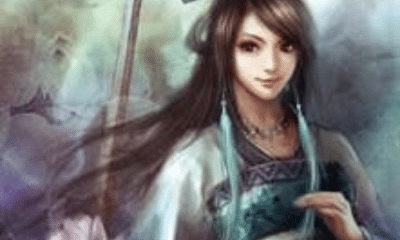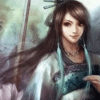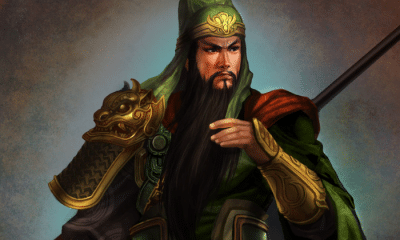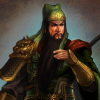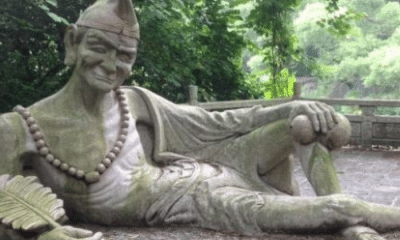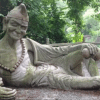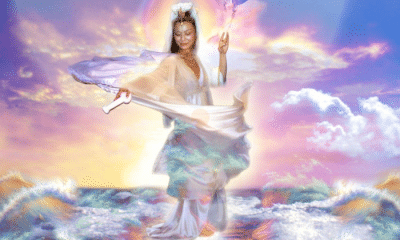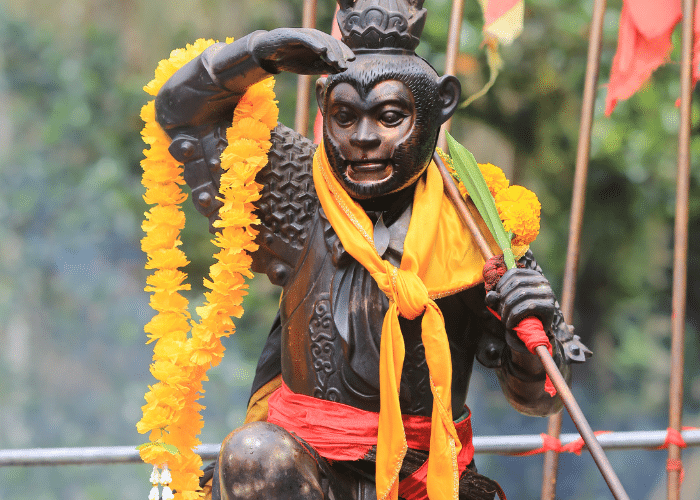
Chinese
The Monkey King Sun Wukong
The Monkey King Sun Wukong
The Monkey King is not a traditional feature of Chinese folklore, but he has become one of the culture’s most recognizable characters. Keep reading to learn about Sun Wukong’s story!
Many well-known characters from Chinese folklore have ancient origins. In a culture that takes pride in its long history, legendary figures from thousands of years ago can be seen as historically accurate.
A few figures have much more recent origins, however. Among these, Sun Wukong is one of the most famous.
The Monkey King did not appear in China until he was made famous in a 16th-century novel. In a short period of time, however, he was one of East Asia’s most beloved heroes.
Sun Wukong began his story as an intelligent but rebellious demon. In the end, he was a master of the Tao and an enlightened Buddha.
To reach his full spiritual potential and atone for his bad behavior, Sun Wukong had to take one of the most famous journeys in Chinese literature. His Journey to the West would inspire the culture for centuries to come.
Sun Wukong’s Journey to the West
Sun Wukong is not generally thought of as a god in Chinese folklore.
He did not appear until the 16th century when he was a character in one of China’s greatest classical novels, Journey to the West. Attributed to Wu Cheng’en, Journey to the West has been described as the most popular and influential text in East Asian literature.
Inspired in part by historical events, it concerns the pilgrimage of a monk named Tang Sanzang to Central Asia and India in search of more complete and accurate Buddhist texts. It is based in part on the journey of a historical figure named Xuanzang who made the trip in the 7th century in defiance of the emperor’s travel ban.
The Ming Era novel combines adventure and humor with Buddhist and Taoist morality. Its entertainment value and moral lessons have made it popular for over four centuries.
Sun Wukong was not entirely invented by the author of Journey to the West, however.
Most historians believe that the Monkey King character was inspired by figures from Hindu and Buddhist texts. In particular, the character was likely influenced by the monkey god Hanuman in the Ramayana, a Hindu epic.
Because Sun Wukong was not a traditional Chinese deity, he is not broadly worshiped as a god. Instead, he is viewed as a cultural hero and popular literary character.
The Monkey King has been portrayed in many forms of media. Journey to the West has been adapted several times for stage, film, and television.
Sun Wukong also inspired later characters and themes in Chinese culture. Books, music, video games, and manga from across East Asia feature characters that are at least in part based on the popular figure of the Monkey King.
The Birth of the Monkey King
According to Journey to the West, Sun Wukong had no true family.
He was born on the side of Mount Huaguo in ancient times. When a hard wind blew a magical stone from the mountain’s peak, it cracked open and released a monkey.
When the monkey opened his eyes, a bright light shone from them into Heaven. The Jade Emperor saw this, but dismissed the small macaque as a possible source of such a great energy.
Although he was a newborn, the monkey could already walk and talk. He began to explore the forest and soon discovered a group of monkeys to live with.
One day, the monkeys made a bet with one another while they were playing in the water. Whoever was brave enough to jump through the waterfalls near their home to find the stream’s source would be named the king of all the monkeys.
Sun Wukong, of course, immediately braved the falls and found the stream’s source. With the support of the other monkeys, he soon became the most powerful being in the forest.
Not content with ruling only over the forest, the newly-made Monkey King began to expand his reach over a greater area.
When one of his oldest friends died, Sun Wukong, now styling himself as the Handsome Monkey King, decided to build a raft. His hope was to seek out a Taoist immortal to teach him how to avoid and possibly reverse death.
Acquiring human clothes, he eventually found his way to the home of a Taoist martial named Subhuti. The immortal refused to allow the monkey to enter, but was impressed when Sun Wukong waited outside his door for months on end.
The master eventually agreed to teach the Monkey King the Tao, but stipulated that he should never flaunt his knowledge or tell anyone where he had learned. Realizing that no time had passed in the world outside Subhuti’s home during his intensive training, the Monkey King would later say that he learned everything he knew in a dream.
He later went to the home of the Dragon King of the East, Ao Guang, who also refused to see him. This time, Sun Wukong simply stormed past the dragon’s guards claiming that they must be confused to deny entry to another king.
Knowing that the dragons possessed great treasure, Sun Wukong demanded a gift from the Dragon King. He eventually received Ruyi Jingu Bang, a magical golden staff that no other being had ever been strong enough to wield.
He then acquired more of the Dragon King’s prized treasures by asking Ao Guang for some clothing. Among the gifts was a cap of phoenix feathers and boots that allowed him to walk on clouds.
The dragon was furious at this extortion. He had Sun Wukong sentenced to death for abusing the privilege of a guest by demanding the most prized treasures.
When the Monkey King learned that the Kings of Hell were after him, however, he tricked them as well. He stole the Book of Life and Death, which recorded the lifespan of every person and being that would ever live, and erased his own name entirely.
Unable to look up his appointed time of death, the Kings of Hell were unable to collect the Monkey King. They and Ao Guang went to the Jade Emperor with their complaints.
Sun Wukong and the Jade Emperor
When the Jade Emperor learned that the monkey he had been so dismissive of had become a powerful demon, he hoped to temper his mischief rather than simply punish him. He believed that a position in Heaven and the positive example of the immortals would tame the Monkey King.
The Jade Emperor invited Sun Wukong to take a place in Heaven, which the Monkey King quickly agreed to. The monkey, who was becoming increasingly human-like, was given the position of Protector of the Horses.
Sun Wukong was initially pleased with this important-sounding role, but he soon realized that it was simply a title for the stablehand, the lowest position in Heaven. Realizing that the other immortals would never treat him as an equal or take him seriously, he turned to mischief again.
The Monkey King wreaked havoc by releasing all the Cloud Horses before returning to his own kingdom. Giving himself the title of The Great Sage, Heaven’s Equal, Sun Wukong earned the ire of the Jade Emperor.
Other gods cautioned the emperor against retaliation, however. Realizing that they had underestimated the Monkey King’s power, they worried about the repercussions if a military attack against him went poorly.
Instead, they accepted The Great Safe, Heaven’s Equal as a courtesy title and decided among themselves to treat Sun Wukong as a pet. They brought him back to Heaven so he could not do more damage on Earth.
Given the role of Guardian of the Heavenly Peach Garden, Sun Wukong set about studying greater Taoist truths than he had learned under Subhuti. The Jade Emperor hoped to distract him with more pleasant pastimes, in part to keep the Monkey King from growing more powerful.
‘Can this sort of practice lead to immortality?’ asked Wukong.
‘Impossible! Impossible!’ said the Patriarch.
‘I won’t learn it then,’ Wukong said.
-Wu Cheng’en, Journey to the West (trans. Jenner)
One day, however, Sun Wukong was disappointed to learn that he was the only immortal in heaven who had not been invited to a feast in honor of Xiwangmu, the Jade Emperor’s wife. His disappointment turned to anger when a group of pretty young goddesses mocked him for using his grand-sounding title, saying that everyone knew he was just the monkey who took care of the peach garden.
Sneaking some of the royal wine, Sun Wukong soon realized that the highest levels of heaven had been left unguarded because everyone was at the banquet. These lofty halls were only accessible to those who reached the highest levels of spiritual power, and because they paid so little attention to him the gods had not realized how much the Monkey King had studied.
In addition to helping himself to the remainder of the Jade Emperor’s wine supply, Sun Wukong stole some of Heaven’s greatest treasures. He pocketed Laozi’s alchemical Pills of Immortality and Xi Wangmu’s Peaches of Immortality before returning once again to his own kingdom.
This time, the Jade Emperor could not be counseled out of taking military action.
The Monkey King had grown so strong, however, that he was the equal of the strongest forces Heaven could send against him. Sipping wine and laughing, he single-handedly defeated 100,000 immortal warriors, 28 constellations, all four Heavenly Kings, and the warrior immortals Nezha and Erlang Shen.
The Titles of the Trickster
Eventually, the combined powers of the greatest Taoist and Buddhist figures were used to subdue the Monkey King.
Guanyin, the Buddhist goddess of mercy, helped the Jade Emperor’s forces lock Sun Wukong in a crucible that would use the eight principles of reality to distill him down into a liquid elixir.
When they opened the crucible after forty-nine days, however, Sun Wukong was still alive and whole. He had hidden in a corner that was dominated by the wind to escape the fire and the other elements.
The Jade Emperor and his advisors appealed directly to the Buddha as Sun Wukong went to confront them.
The Buddha listened as Sun Wukong appealed to him that, because he had bested all of Heaven, he should be named the new Jade Emperor. The Buddha accepted, if Sun Wukong could also get the better of him.
To do so, all the monkey would need to do would be to escape from the Buddha’s palm.
Sun Wukong happily agreed and left from the Buddha’s open palm to the edge of the world. He urinated on one of the pillars there and leapt back to brag about how easily he had accomplished the task.
When he returned, however, the Buddha asked him to take note of how many pillars he had seen at the world’s end. There had been five, but only four pillars supported the weight of Heaven.
The pillars had not been the end of the world, but the Buddha’s fingers. Sun Wukong had not yet escaped the Buddha’s grasp.
The Buddha flipped his hand, sending Sun Wukong hurling back to the earth. He brought a great mountain down on him, trapping the Monkey King beneath the stone.
Sealing him in the mountain with a talisman, the Buddha decreed that Sun Wukong would remain there, with only his head and one hand reaching the surface, for five hundred years. This would be time, the Buddha said, for the rebellious monkey to learn humility and respect.
Through his adventures, Sun Wukong came to be known by many names. While the most famous were those he took during his rebellious early years, his later adventures would grant him more honored titles.
- Shi Hou (Stone Monkey): His first name referred to his birth from a magical stone.
- Mei Houwang (Handsome Monkey King): While mei means “handsome,” it can also refer to someone who is excessively vain or pleased with themselves.
- Sun Wukong (Awakened to Emptiness): His most famous name was given to him by his first teacher, Subhuti. It was also a play on words since the family name Sun resembles a word for “monkey.”
- Bimawen (Keeper of the Heavenly Horses): Like many of his names, this was also a pun. The phrase bimawen also referred to “avoiding the horse’s plague,” a belief that a monkey in the stables would keep horses from falling ill.
- Qitian Dasheng (The Great Sage, Heaven’s Equal): His self-styled title was adopted as a courtesy title by the Jade Emperor’s court. Such titles were often given in government to confer honor without any actual responsibility or position.
- Xingzhe (Ascetic): The first name given to him after his imprisonment, he was named as a wandering monk after agreeing to accompany Tang Sanzang.
- Dou-zhansheng-fo (Victorious Fighting Buddha): At the end of his journey, Sun Wukong was given a name to reflect his accomplishments.
- Ling-mingdan-hou (Intelligent Stone Monkey): This title is used to refer to Sun Wukong as one of four legendary primates that do not fall under the ten categories that all other living beings can be classified under.
- Sun Zhanglao: After his association with Buddhism, he was given the honorific title of a monk, Zhanglao.
Sun Wukong’s Path to Buddhahood
The Monkey King would eventually reach enlightenment, but it would take an arduous journey for him to do so.
Five hundred years after his imprisonment, Guanyin came to Sun Wukong with an offer of mercy. A pilgrim named Tang Sanzang needed companions on a sacred journey to the west, and the Monkey King would earn his freedom if he joined him.
Sun Wukong initially refused because he did not want to lower himself by serving a human. The idea of freedom was too tempting, however, so he eventually agreed to join the trip.
Knowing that the Monkey King would be impossible to control, Guanyin gave Tang Sanzang a gift from the Buddha. When the monkey was tricked into putting on a delicate golden circlet, it became impossible to remove.
If Tang repeated a holy sutra, the circlet would tighten to an agonizing degree. If the Monkey King tried to cause any mischief, the traveler had a tool to use against him.
Two other travelers accompanied them, demons named Zhu Bajie (Pigsy) and Sha Wujing (Sandy). Together, the demons would provide protection for the pilgrim.
Tang Sanzang needed this protection. A rumor had spread among the evil spirits and demons that eating his flesh would grant immortality and great power, so the group was constantly assaulted by evil forces.
During their long journey to the west and back, the group encountered eighty-one great trials. Sun Wukong and his companions fought off all the demons and bandits that assailed them, the Monkey King laughing and joking through every battle.
Although the Monkey King was initially resistant, over the course of the journey he began to listen to Tang’s teachings. As they traveled, he learned more and more about the teachings of the Buddha and the path to enlightenment.
By the time the group returned to China and Sun Wukong was awarded his freedom, he had fully absorbed the teachings of Tang Sanzang and the scriptures they had retrieved from India. He achieved Buddhahood and fully repented for his previous behavior.
In the end, the Jade Emperor happily welcomed Sun Wukong back into Heaven. Now known as the Victorious Fighting Buddha, the Monkey King became a joyful and helpful presence among the bodhisattvas and the immortals.
Xiyoubou
Sun Wukong quickly became a popular character. Journey to the West was so successful that it soon inspired adaptations, sequels, and translations.
One of the most popular follow-ups to Journey to the West was written about a hundred years after the popular publication. The short novel Xiyoubou (Supplement to Journey to the West) dates to about 1640.
Taking place midway through the journey in the original book, Xiyoubou follows Sun Wukong while he is trapped in a dream world by the Qing Fish Demon.
The embodiment of desire, or qing, the demon hoped to tempt the Monkey King away from both his duty to Tang Sanzang and the path of Buddhism.
Using a magical tower of mirrors, Sun Wukong travels back and forth through time to influence different events.
Traveling to the time of the Qin Dynasty, Sun Wukong adopts the disguise of Consort Yu, a romantic figure from the 2nd century. In this guise, he is able to secure a mountain-moving bell to help his group reach India.
Going forward in time, Sun Wukong finds himself in the Underworld. He is told that King Yama has died and it is his job to judge the dead.
The first soul to be judged is that of Prime Minister Qin Hui, a traitorous official of the Song Dynasty. He sentenced him to a grisly torture and took his last victim, the poet Yue Fei, as his newest teacher.
Fighting through red strings, Sun Wukong is finally able to return to his own time. He learns, however, that in his absence Tang Sanzang has abandoned his journey, gotten married, and become a general in the army of the pretender Great Tang’s army.
On a mission to fight desire, Tang is leading his forces against one of Sun Wukong’s own sons, King Paramita. The Monkey King becomes a general himself to face off against his own son in service to Tang Sanzang.
He awakens from his dream just as the two armies clash and, in the confusion, each begins attacking its own allies.
The disembodied voice of the Master of the Void explains to him that he has been enchanted by the Qing Fish Demon, with whom he shares a special connection because they were born at the same time. Realizing that the demon infiltrated the camp in the guise of a beautiful young monk, Sun Wukong kills the demon and ends the enchantment.
The novel ends with a series of questions answered by the author. The first of these is why a supplement to the first book was necessary.
The author, Dong Yue, explains that he wanted to have Sun Wukong face off against an enemy that could not be defeated by force alone. To achieve Buddhahood, the Monkey King would have to defeat his own inner desires, a feat that could not be done in battle.
The Adventures of Sun Wukong
Sun Wukong was not a traditional god of Chinese folklore. Instead, he is a cultural hero who was introduced in the 16th-century classic novel Journey to the West.
In it, he is a monkey born from a magical rock. In possession of great powers from the moment of his birth, he quickly became the Monkey King and the ruler of the forest.
He was given the name Sun Wukong by a Taoist master who taught him the ways of immortality. For many characters, this knowledge was the culmination of their story, but it was only the beginning of the Monkey King’s tale.
After offending both a dragon king and the rulers of Hell, Sun Wukong was taken to Heaven in the hopes that it would calm him. Instead, he was offended by the rude treatment and low position he received.
Stealing artifacts of immortality and naming himself The Great Sage, Heaven’s Equal, the Monkey King earned the enmity of the Jade Emperor. The forces of Heaven had underestimated his power, however, and were unable to capture him.
Only the Buddha was able to imprison Sun Wukong. He trapped him under a mountain for five hundred years to teach him humility and patience.
When his sentence was up, the Monkey King was offered his freedom if he protected a pilgrim, Tang Sanzang, on a journey to retrieve Buddhist scriptures from the west.
Sun Wukong protected the Buddhist traveler from demons and, eventually, began to learn his teachings. By the end of the journey, he had attained enlightenment and been named a Buddha.
Although Sun Wukong was not a figure from ancient legends, he became a popular character in Chinese culture. The combination of adventure, humor, and moral lessons in his story made Journey to the West the most influential story in East Asia.


